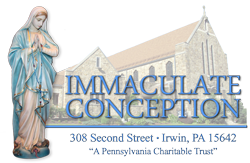In my homily last Sunday I mentioned using the following days this week to meditate on each of the Gifts of the Holy Spirit. So, I would like to share these gifts for daily reflection.
Thursday – Wisdom
[The following passage is taken from the book Divine Intimacy by Fr. Gabriel of St. Mary Magdalene.]
This chapter expounds the traditional doctrine of Catholic mystical theology that contemplation arises from the gift of wisdom, founded on charity, which elevates the virtue of faith to a superhuman mode of operation. By faith, we intellectually assent to revealed truth; but in its human mode, faith still works with individual propositions and abstract concepts. Wisdom elevates faith to a superhuman mode, in which it encounters the divine truths in a quasi-experimental manner. Faith at this level truly becomes an “encounter” with God Himself; it is an experience which surpasses abstract knowledge. This is the teaching of the ancient fathers of the Church, and of St. Thomas Aquinas, represented here by Fr. Gabriel of St. Mary Magdalene.
The gift of understanding enables us to penetrate God’s mysteries; the gift of wisdom takes us further: it lets us taste them and gives us a delightful knowledge of them. This is the savory knowledge of which St. Bernard speaks, the untranslatable “dulce sapere” which the Holy Spirit offers us in the words: “Gustate et videte quam bonus sit Dominus” (Ps 33,9). “Taste and see that the Lord is sweet.” It is not by chance that it is first said taste, and then see, for by the gift of wisdom we know God by the experience of the heart which “tastes” the object loved.
There are two ways of knowing: a speculative, intellectual way, and an experimental way, resulting from a kind of “connaturality” with the object of our knowledge. The latter is not so clear, but it is much deeper than the former, and grasps the inner substance of things. Thus, for example, because of the affinity of thought and affection that binds a mother to her child, she knows its heart much better than any other person. Similar to this is the knowledge of divine subjects which we acquire by means of the gift of wisdom. Between God and us there is a certain “connaturality,” a certain similarity, produced by the love which unites us to Him and in some way assimilates us to Him; even more, St. Paul does not hesitate to say that “He who is joined to the Lord, is one spirit” (I Cor 6,17).
The gift of wisdom enables us to know God and divine things precisely through this “connaturality,” and therefore gives us a delightful experience of them through the love which is its source. This experience seizes the soul in its very center, that is, the will, forcibly drawing it to God and at the same time, inundating the intellect with floods of light. The gift of wisdom acts somewhat like the rays of the sun which give heat and light at the same time. Its warmth quickens charity in the soul, and through this enkindling of love, the soul is enlightened concerning the divine realities and is enabled to judge of them, because it knows intuitively their infinite goodness and their absolute superiority over all created things. “Oh, the depth of the riches of…God!” (Rom 11,33). This is the cry of the soul inflamed and illumined by the gift of wisdom.
All the gifts of the Holy Spirit are closely connected with charity, for they abound only in souls who possess charity, and they develop in the measure that charity increases. However, the gift of wisdom has a very special relationship to the love of charity, primarily because it is set in action by means of charity. St. Thomas says, “The cause of the gift of wisdom is found in the will, and it is charity” (IIa IIae, q.45, a.2, co.); therefore, the more a soul loves God, the more capable it becomes of receiving the motions of this gift. In addition, the delightful knowledge of God derived from the gift of wisdom is a most powerful means of increasing charity. How can we fail to love the Lord more after having tasted His sweetness? In the measure that the gift of wisdom invades a soul, charity increases and so does its unitive force, by which the soul adheres ever more closely to God.
This gift leads to a more profound prayer than that experienced when the gift of understanding alone intervenes: the soul feels “seized” and drawn by God in an irresistible way; it feels truly united to the Lord and tastes Him in this union – not in a sensible manner by spiritually – and by intuition, it knows Him in the most intimate way possible here below. The soul emerges from this prayer inflamed with love, a love which it expresses above all by the perfect conformity of its will with God’s in all the happenings of life; it comes from this prayer for full of God that, upon returning to its ordinary duties, it sees and considers everything in relation to God. In this way, the gift of wisdom extends its influence even in our practical life and teaches us to judge all things in the light of God.
In order to receive the actions of the gift of wisdom – the most sublime of all the gifts – we should gently prepare our heart for the plenitude of love, and at the same time apply ourselves to the acquiring of a profound humility, because as Jesus has said: “Thou hast hid these things from the wise and prudent, and has revealed them to little ones” (Mt 11,25).
“And those alone acquire the wisdom of God who are like ignorant children, and, laying aside their knowledge, walk in His service with love” [John of the Cross, Ascent of Mount Carmel, I, 4,5].
Note from Fr. John: These meditations came from a wonderful website: spiritualdirection.com. I recommend it for further use to grow in Divine Intimacy.


